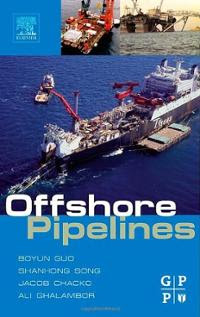Due to great demands for oil in recent years, offshore pipelines are also receiving great attention. To date, over a third of the growth in drilling worldwide is expected to come from offshore pipelines alone. This fueled a greater need for the development of offshore pipelines than before, and the number of petroleum engineers needed to efficiently develop and manage these systems has also increased.
 |
| Image Source: dnv.com |
The task wouldn’t be easy, though. Offshore pipelines are known for being complicated systems as they are installed at the bottom of the sea, and engineers are required to have years of education and training before they can operate offshore pipelines. The location of these pipelines alone makes for an extremely demanding installation process; more so with all the details that come with the nitty-gritty of a system’s operation and upkeep.
Specialized knowledge is required to fulfill such a specialized function. Unfortunately, there has been a notable shortage of literature on petroleum engineering, prompting industry experts Boyun Guo, Shanhong Song, Ali Ghalambor, and Jacob Chacko to write Offshore Pipelines, an up-to-date reference for engineers and developers to conquer the challenging task of bringing oil and gas onshore.
 |
| Image Source: pipesyscon.com |
The authors wrote the book with pipeline design engineers, pipeline operation engineers, and management personnel in mind, taking into consideration the following objectives:
• For learners to be able to learn cost-effective methods in the management and operation of offshore pipeline systems.
• For learners to be acquainted with the burgeoning science of “deepwater pipelining,” a relatively new technology which has been only developed in the past 10 years.
• For learners to be able to master the art of designing pipelines at a low cost without compromising safety and long-term operability.
 |
| Image Source: tower.com |
This Ali Ghalambor Twitter account updates followers on the oil and gas industry.
No comments:
Post a Comment